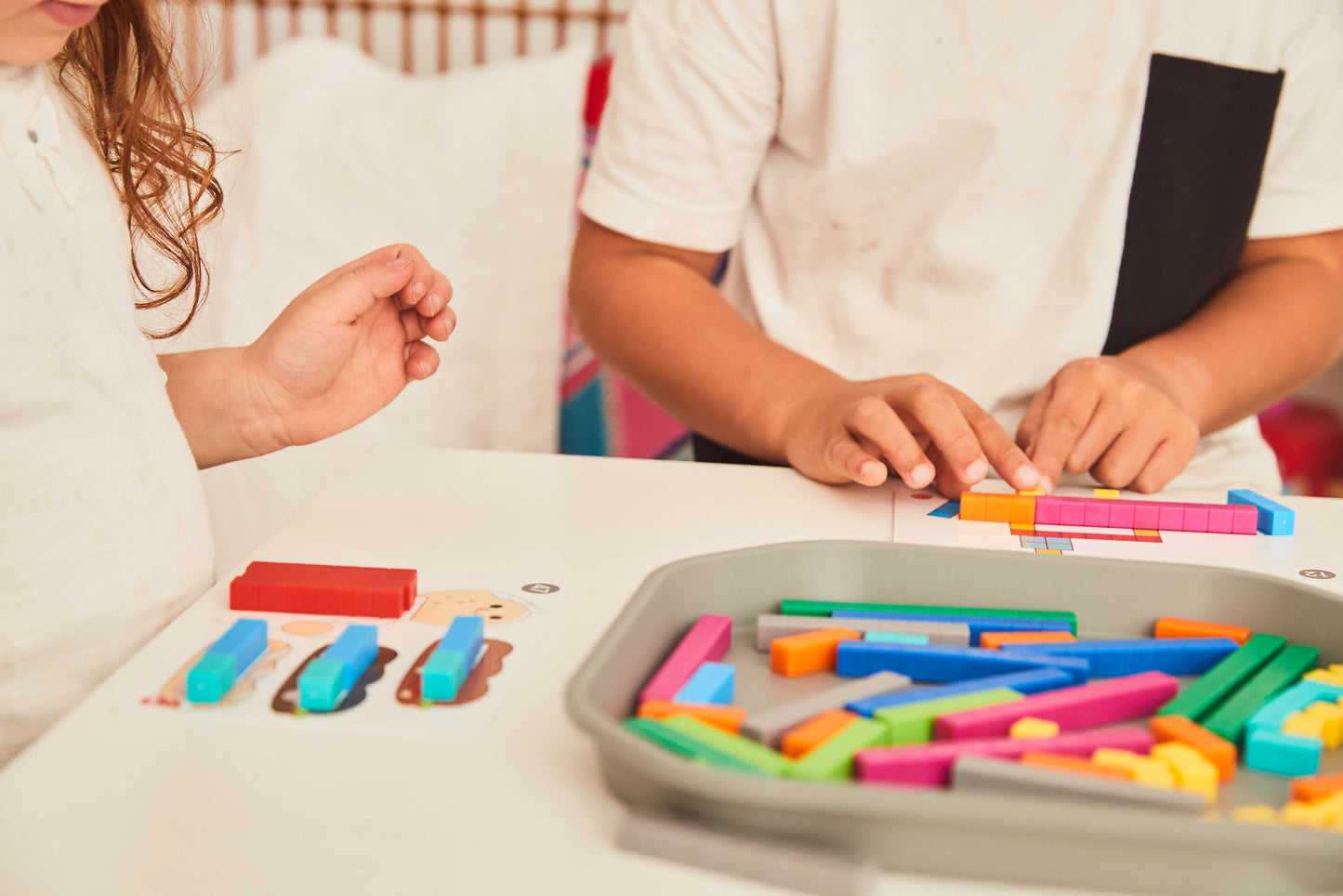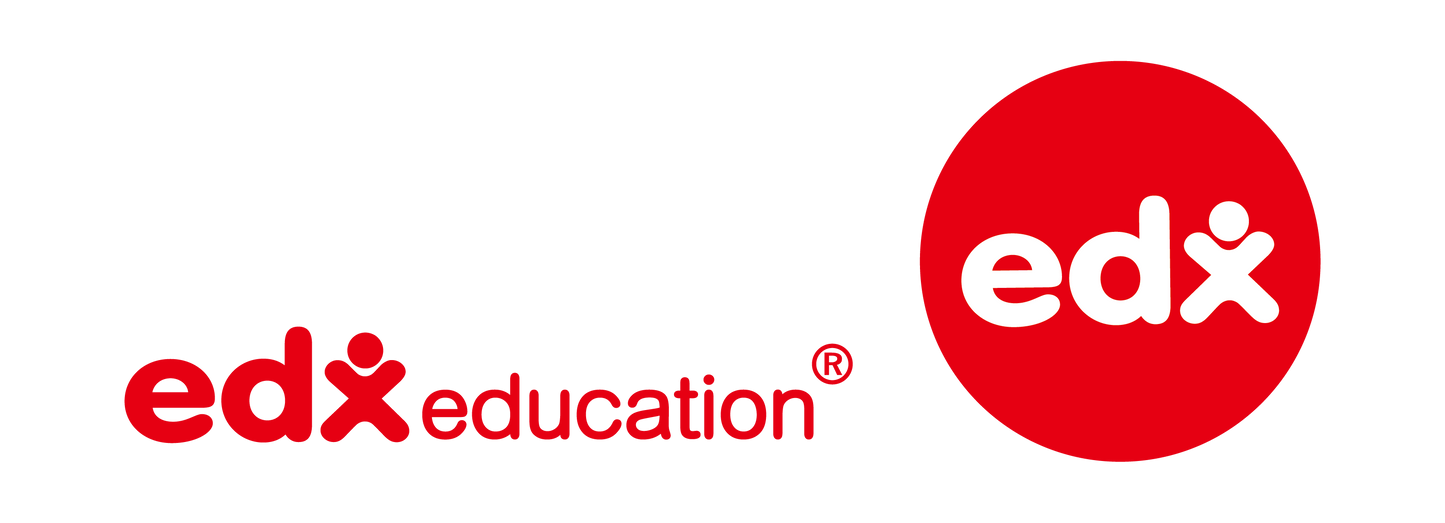
Early childhood is a crucial time for development, as young children are naturally curious, eager to explore, and open to learning new things. For parents and caregivers, finding the right tools to foster this growth can make all the difference.
At Edx Education, we believe in the power of play-based learning to support children’s development in ways that are joyful, engaging, and impactful. Today, we’ll look at some of our top toys to help children build foundational skills across areas like motor skills, cognitive development, social-emotional learning, and creativity.
1. Rainbow Pebbles® – Creativity, Fine Motor Skills, and Math Basics
At Edx Education we love Rainbow Pebbles® as they offer endless open-ended play possibilities. With their bright colours and varying sizes, Rainbow Pebbles® encourage children to sort, stack, and balance in different ways, which boosts fine motor skills and creativity. The tactile nature of the pebbles also enhances sensory exploration, and children can use them for early math activities, such as counting, patterning, and sorting by color and size.
These pebbles are also ideal for introducing basic math concepts. Through arranging and counting pebbles, children can develop an understanding of numbers, grouping, and sequencing. The flexibility of the activity helps children learn naturally at their own pace, encouraging confidence and a love for math that will benefit them in school.
2. Linking Cubes – Cognitive Development and Problem Solving
For children ready to take on more complex challenges, Linking Cubes are an excellent choice. These durable cubes can be connected to create shapes, patterns, or even basic structures, making them ideal for introducing basic geometry and spatial awareness. As children figure out how to link cubes to form specific shapes, they develop essential problem-solving skills, which fosters resilience as they learn to tackle and resolve challenges.
Linking Cubes can also be used to introduce counting and addition, as children begin to group and count the cubes they link together. This activity helps them understand quantities and relationships between numbers, laying the groundwork for more advanced math concepts.
3. Pattern Blocks – Spatial Reasoning and Creativity
Pattern blocks are another fantastic tool for encouraging spatial reasoning, critical thinking, and creativity. Children can use the blocks to create their designs or follow templates to replicate patterns, which helps with cognitive flexibility and visual-motor integration. The bright colors and geometric shapes naturally draw children in, making them eager to experiment and see what they can build.
Not only are pattern blocks great for recognizing shapes and colors, but they also support early geometry skills by introducing concepts like symmetry, reflection, and tessellation. As children grow more confident, they can explore these ideas further, strengthening their understanding of spatial relationships.
4. Number Rods – Early Math Concepts and Fine Motor Skills
Number Rods are perfect for children just beginning their journey with numbers. These colourful, segmented rods help children visualize numbers and understand basic mathematical concepts such as addition, subtraction, and equivalence. By arranging rods of different lengths, children can see how numbers relate to each other and gain a tangible sense of what addition and subtraction look like.
Handling the rods also promotes fine motor skill development, as children must carefully place and align the rods in specific arrangements. This dual focus on math and motor skills makes Number Rods a powerful tool for supporting overall development in a playful and engaging way.
5. Dancing Ribbons – Gross Motor Skills and Self-Expression
For children with lots of energy and a love of movement, Dancing Ribbons provide a wonderful outlet. These colorful ribbons attached to sticks encourage children to move, dance, and express themselves freely, supporting the development of gross motor skills. By using Dancing Ribbons, children can improve their coordination, balance, and spatial awareness while releasing energy in a fun, constructive way.
Dancing Ribbons are also a fantastic way to introduce creative expression and can be used to encourage social play. Children can dance together, mimic each other’s movements, or simply enjoy the flow of the ribbons as they move. This type of play helps build social-emotional skills, as children learn to engage with others and express themselves confidently.
6. Joey Jump – Hand-Eye Coordination and Physical Activity
Another fantastic option for building motor skills is the Joey Jump. This game encourages children to use a small, spring-loaded platform to launch beanbags into the air and catch them, honing hand-eye coordination and timing. Joey Jump offers a blend of physical activity and focus, making it an ideal choice for children who benefit from active learning.
The challenge of catching the beanbag helps children practice patience and persistence, building resilience in a playful setting. It’s also an ideal game for shared play, as children can take turns and celebrate each other’s successes, reinforcing social skills.
Play, Learn, and Grow with Edx Education
Every child is unique, and so is their learning journey. At Edx Education, our toys are designed to support children’s diverse developmental needs in engaging and inclusive ways. Whether you’re nurturing a budding mathematician, an aspiring artist, or simply providing tools for healthy growth and self-expression, our toys offer endless opportunities to play, learn, and grow. Explore these toys and more to find the perfect match for your child’s learning style, and enjoy watching them thrive as they explore the world around them through the power of play.
